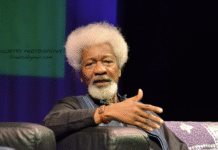In the last 10 years, the plant-based meat industry has skyrocketed, and vegan restaurants have been popping up in mass numbers across the globe. Most people have heard of Slutty Vegan, the black-owned vegan restaurant that aimed to bring vegan options and food awareness initially to Atlanta’s West End and now brings it to other cities. Black-owned vegan restaurant culture is a staple in cities like Baltimore, MD, Atlanta, Los Angeles, Washington, DC and Oakland, CA, but plant-based meat industry and markets are global. What many people don’t know is South Africa has been an early pioneer of the meat alternative industry beginning in the 1990s.
Yeshiel Panchia discusses this factor in an article for Forbes Africa, beginning with the story of South African builder and farmer, Wally Fry, who decided that he could no longer ethically consume animals and started a plant-based company in 1991.
Fry’s decision was ‘fostered by his wife and daughters’ vegetarianism, and catalyzed by the conditions he witnessed in a piggery he constructed.” Unable to find anything that “tasted, looked, and felt like meat,” he decided to invent it. His decision later developed into Fry Family Food Co., the now multi-million dollar manufacturer of vegan meat substitutes. The dominant consumers of Fry Family Food Co. and other plant-based meat companies are not who you might expect.
Most consumers of meat alternatives are people who are simply intrigued by the idea of plant-based meat that tastes the same. In fact, vegans and vegetarians only make up 4% and 6% of global consumers of plant-based meat. As Fry says in an interview, many alternative meat companies are taking advantage of the newness of plant-based meat by marketing their “healthy burger” to curious consumers. After getting a taste of the meat alternatives, the health and environmental motivators typically follow.
South Africa continues to lead the meat-alternative industry, as vegan/vegetarian food options multiply throughout the country. In 2022, Burger King launched plant-based Whoppers, Royale’s and Nuggets in South Africa. One South African company, Mzansi Meat, is working to grow meat using live animal cells!
Many people are recognizing the threat of climate change to the world and the significant role eating meat plays in the destructive global system. Eating meat adds to many problems including the amount of land used to raise the meat, carbon emissions from factories, animal abuse and deforestation in places like South America resulting in forest fires that further wreak havoc on wildlife and the environment. As a result, some countries and companies are increasingly relying on the meat-alternative industry for solutions and South Africa should be one of the first points of reference.
For more information about this topic, read Forbes Africa.
This article was written by Niya Harris, editorial intern for The Burton Wire. Follow Niya on IG @Niya.Harris
Follow The Burton Wire on Twitter: @TheBurtonWireNews IG: @theburtonwire







